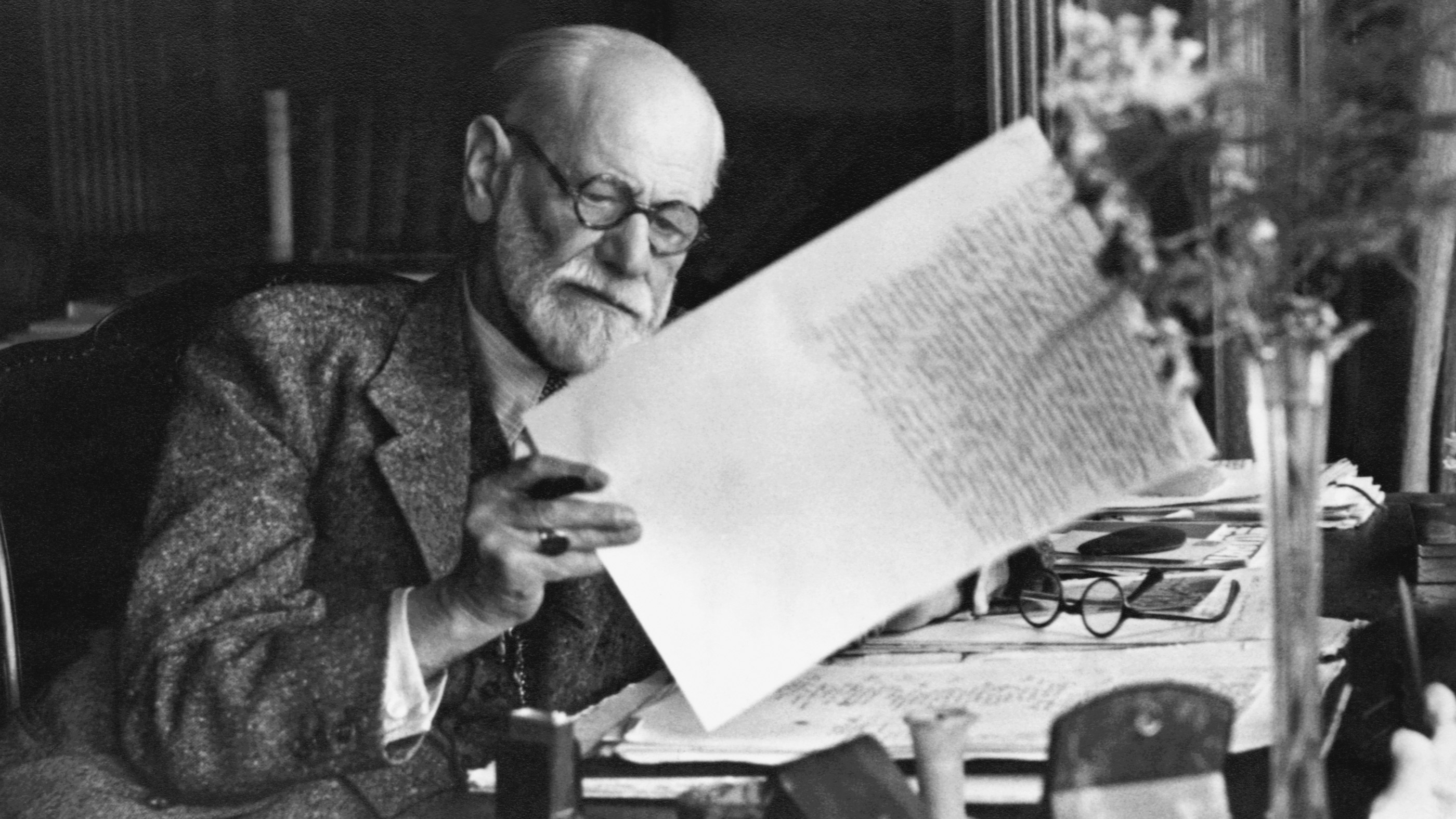
Was Freud right about anything?
Spoiler: not really.

Sigmund Freud is one of the most famous doctors to delve into the human subconscious. But is anything he said rooted in science?
After all, one of his most memorable ideas suggested that we're all repressing our true desires to have sex with our parents. But Freud didn't use science to arrive at this idea. He started out with a theory and then worked backward, seeking out tidbits to reinforce his beliefs and then aggressively dismissing anything else that challenged those ideas. That's according to Frederick Crews, a one-time Freudian follower and professor of English at the University of California, Berkeley.
"Freud passed himself off as a scientist. He was very sensitive to objections and would simply laugh at an objection and claim the person making it was psychologically ill," Crews told Live Science.
Related: Why can't we remember our dreams?
Back in 2017, Crews wrote "Freud: The Making of an Illusion" (Metropolitan Books) to examine the legitimacy of Freudian principles.
"Statistically, it's conceivable that a man can be as dishonest and slippery as Freud and still come up with something true," Crews said. "I've tried my best to examine his theories and to ask the question: What was the empirical evidence behind them? But when you ask these questions, then you eventually just lose hope."
As damning an assessment as that is, it wasn't always like this for the founding father of psychoanalysis, who wrote that mental health problems could be cured by bringing unconscious thoughts back into the conscious realm. In his own time, Freud enjoyed celebrity status as a leading intellectual of the 20th century.
Sign up for the Live Science daily newsletter now
Get the world’s most fascinating discoveries delivered straight to your inbox.
Chief among Freud's overflow of opinions was the "Oedipus complex," the hypothesis that every young boy wants to have sex with his mother and so wants to murder his father, whom he sees as a rival. But there's a catch. The boy also has the foresight to realize that his father is simultaneously his protector. Presented with this challenging scenario, the child is forced to repress his homicidal cravings.
"It's just about the craziest idea that anyone ever had," Crews said. When people asked about young girls, Freud hastily came up with another idea, the Electra complex. "It's just a cut-and-paste job. Suddenly, the little girl wants to have sex with her father," Crews said. "It's completely ludicrous."
At the core of both these theories is the notion of repressed emotions. That very concept empowered Freud to dismiss his detractors. "He would always be totally convinced he knew what was wrong with his patients and then simply browbeat them until they agreed. When patients disagreed, he didn't entertain the notion that he could be mistaken," Crews said. "He invoked his favorite concepts, chiefly repression, and would say the patient's unconscious secretly harbored Freud's ideas but was too scared to confront them. That's the exact opposite of testing ideas."
But not everyone is as critical as Crews.
"Freud was right about 'day residue' in dreams," said Robert Stickgold, a professor of psychiatry at Harvard Medical School. "But the whole psychoanalysis thing, and the role of childhood sexuality, was totally bonkers."
Day residues are exactly what you think they are: traces of what happened in reality that find their way into our dreams. Freud was nothing if not prolific, content to opine on matters as diverse as sexual perversions, the notion of female "hysteria," and subliminal memory, or the memories that supposedly lurk in parts of the brain separate from the conscious. But for some observers, that's where the man's apparent genius lies.
"You can think of him as an idea factory," explained Harold Takooshian, a professor of psychology at Fordham University in New York City. "Freud never considered himself a data guy. He hoped other people would take on his ideas to prove or disprove them."
But Freud's theories are, on the whole, almost impossible to submit to the rigor of statistical analysis that legitimate science has to endure, said Crews. "That's because his ideas are hopelessly vague. How do you test for them? They're just phrases."
Editor's note: This story was updated at 8:49 p.m. EDT Oct. 14, 2021 to fix the photo caption, which mistakenly called Freud a psychiatrist, instead of a neurologist.
- How accurate is the Myers-Briggs personality test?
- Is penis envy real?
- Do dreams really reveal our deepest secrets?
Originally published on Live Science.
OFFER: Save at least 53% with our latest magazine deal!
With impressive cutaway illustrations that show how things function, and mindblowing photography of the world’s most inspiring spectacles, How It Works represents the pinnacle of engaging, factual fun for a mainstream audience keen to keep up with the latest tech and the most impressive phenomena on the planet and beyond. Written and presented in a style that makes even the most complex subjects interesting and easy to understand, How It Works is enjoyed by readers of all ages.

Benjamin is a freelance science journalist with nearly a decade of experience, based in Australia. His writing has featured in Live Science, Scientific American, Discover Magazine, Associated Press, USA Today, Wired, Engadget, Chemical & Engineering News, among others. Benjamin has a bachelor's degree in biology from Imperial College, London, and a master's degree in science journalism from New York University along with an advanced certificate in science, health and environmental reporting.











